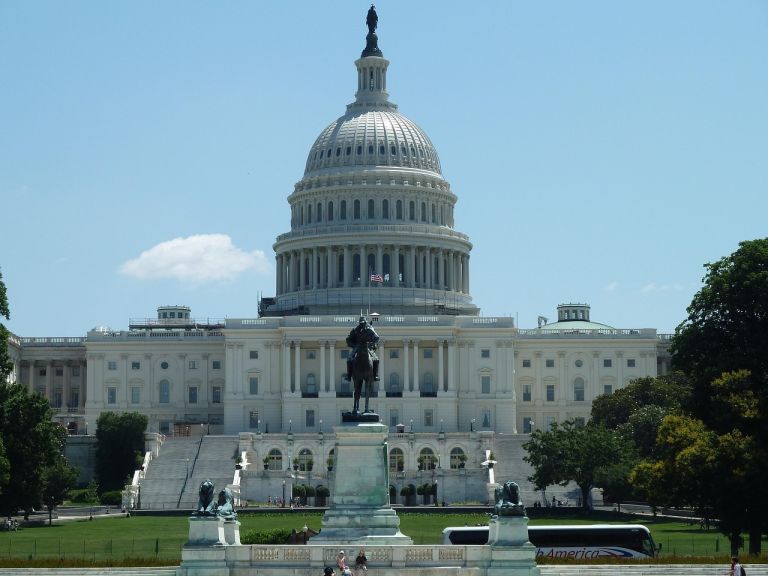Turkey in the Crosshairs: U.S. Legislators Target Ankara with New Defense Amendments

Πηγή Φωτογραφίας: pixabay//Turkey in the Crosshairs: U.S. Legislators Target Ankara with New Defense Amendments
Key Developments and Content of the Amendments
1. Goldman’s Amendment: Security Report on Turkey’s Occupation of Cyprus
Rep. Dan Goldman’s proposed amendment mandates that within 180 days of the bill’s enactment, the Pentagon, in coordination with the Department of Homeland Security and intelligence community, must submit a detailed security assessment to relevant Congressional committees. The report must cover:
- The security risks posed by Turkey’s continued occupation of Cyprus, specifically to the United States, Cyprus, Greece, Israel, and the United Kingdom.
- The presence of U.S.-designated terrorist organizations—such as Hamas, Hezbollah, and the IRGC—in the occupied territories.
- A chronology of terrorist attacks or attempts either launched from or facilitated within those areas, including incidents targeting the Republic of Cyprus or the U.S. sovereign bases at Akrotiri and Dhekelia.
- Vulnerabilities of U.S. troops, assets, or facilities in Cyprus to potential terrorist actions.
- The extent to which Turkey has enabled or failed to prevent terrorist operations, including any correlation with U.S. weaponry present in the region.
- The degree of political, material, and financial support Turkey provides to terrorist organizations, possibly via institutions located in the occupied territories.
2. Gottheimer’s Amendment: Arms Transfer Restrictions to Turkey
Rep. Josh Gottheimer introduces an amendment that bars the U.S. president from approving or licensing defense exports to Turkey unless the State Department, in consultation with the Pentagon, submits a report to Congress verifying several conditions, including:
- That Turkey is no longer repeatedly violating territorial sovereignty of NATO allies or Cyprus, nor supporting terrorist groups.
- That Turkey is not procuring defense systems from adversaries of the U.S. in contravention of U.S. law.
- That U.S.-supplied arms are not being used to facilitate the occupation of Cyprus, including detailed accounting of vehicles/weapons already deployed there.
- That Turkey is taking measures to prevent attacks against U.S. servicemembers or their families.
The amendment includes a five-year ban on arms transfers unless the president certifies compliance with the above.
Both amendments receive strong backing from prominent Greek-American advocacy groups such as HALC and AHI.

Geopolitical & Strategic Context
- These amendments reflect a growing skepticism in the U.S. Congress toward Turkey’s regional behavior, particularly following its incursions into Greek airspace and continued division of Cyprus.
- Previous legislative efforts to curb U.S. arms transfers to Turkey—especially F‑16 sales—have already made significant headway. For instance, a bipartisan amendment to the FY 2023 National Defense Authorization Act (NDAA) restricted such sales, prompting widespread support among Greek-American legislators
- Simultaneously, there is a push to lift or extend the arms embargo on Cyprus. In 2019, the EastMed Act allowed a partial, annually renewable thaw in the embargo framework In 2025, a bipartisan bill proposes to permanently lift the embargo and anchor it within a broader U.S.–Greece–Cyprus–Israel cooperative framework (the “3+1” initiative).
Implications & Strategic Outlook
- Congressional Oversight Intensifies: These amendments are poised to introduce far more stringent conditions on Turkey’s military cooperation with the U.S.—particularly on arms procurement and transfers.
- Cyprus as a Security Focus: The Goldman amendment explicitly reframes Cyprus as not just a regional concern—but a potential threat-vector or staging ground for terrorism affecting U.S. interests.
- Rebalancing Eastern Mediterranean Dynamics: By simultaneously constraining Turkey and enabling Cyprus, Congress signals a strategic tilt—favoring stability, rule of law, and Western-aligned security cooperation in the region.
- NATO Tensions and Armenia Implications: Turkey’s behavior becomes a liability within NATO, and these moves resonate with broader U.S.–regional alliances, including support for Armenia and countering Turkish influence
The proposed amendments by Reps. Goldman and Gottheimer mark a significant escalation of U.S. legislative scrutiny over Turkey’s regional actions. If enacted, they will:
- Mandate robust accountability for Turkish occupation policies in Cyprus.
- Impose protracted restrictions on defense exports, contingent on compliance with international norms and U.S. interests.
This legislative trend underscores a clear message from U.S. lawmakers: support must align with responsibility, and strategic partnerships—whether in Cyprus, Greece, or Israel—must be defended through policy and oversight.
Source: pagenews.gr
Διαβάστε όλες τις τελευταίες Ειδήσεις από την Ελλάδα και τον Κόσμο






Το σχόλιο σας